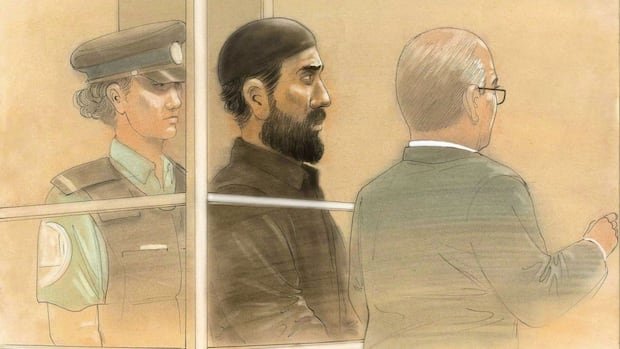The Supreme Court of Canada is scheduled to make a decision on Thursday regarding the potential appeal of Raed Jaser, who was found guilty of conspiring to commit murder for the benefit of a terrorist organization. This marks the latest development in a lengthy legal process that commenced 12 years ago with charges leveled against Jaser and Chiheb Esseghaier for planning various attacks, including targeting a Via Rail passenger train.
According to the prosecution, Jaser and Esseghaier had allegedly conspired to eliminate Canadian citizens to coerce Canada into withdrawing its military forces from Afghanistan. The prosecution’s case primarily relied on intercepted communications and the testimony of an undercover U.S. Federal Bureau of Investigation agent who had been tasked with befriending Esseghaier.
While the jury could not reach a unanimous decision on the rail plot charge against Jaser, he was found guilty on three other terrorism-related charges: one count of plotting murder for a terrorist group’s benefit and two counts of engaging in terrorist group activities. Esseghaier, on the other hand, was convicted on all charges.
Both individuals appealed their convictions, arguing that the jury composition during the trial was flawed. In August 2019, the Ontario Court of Appeal ordered a retrial due to the jury selection error. However, the Supreme Court later upheld the convictions, stating that the error did not violate the defendants’ right to a fair trial.
Following the resolution of the jury issue, the case was remanded to the Ontario Court of Appeal to address any remaining challenges to the convictions. While Esseghaier withdrew his appeal, Jaser continued to pursue his legal options. Despite a dismissal of his challenge and life sentence by the Court of Appeal last year, Jaser sought a new hearing at the Supreme Court.
In his application to the Supreme Court, Jaser’s legal team highlighted discrepancies in jury instructions for conspiracy cases and raised concerns about the application of the Canada Evidence Act regarding sensitive information and potential entrapment-related considerations in sentencing. The Crown, however, opposed Jaser’s application, asserting that the issues raised were specific to his case and did not hold broader public importance.

